From an Outdoor Classroom to a STEM Club: How Arizona is Supporting Innovative School Programs During the Pandemic
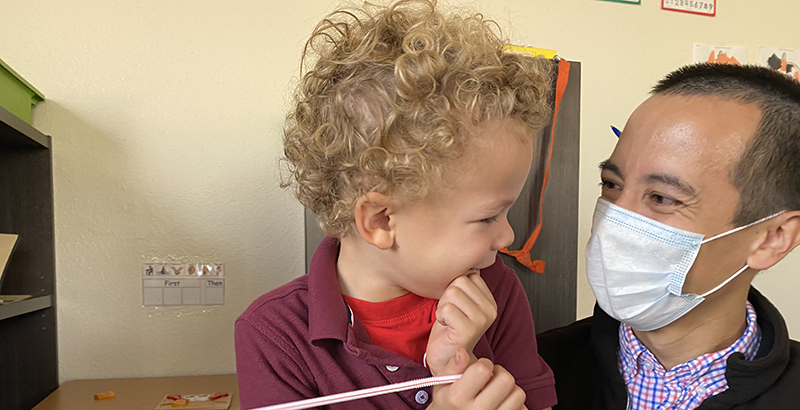
Students at Gowan Science Academy in Yuma, Arizona, could soon have an outdoor classroom where they can socially distance, work on messy projects and enjoy the sunshine.
The outdoor learning hub will be an asset for the public school’s buddy program, where sixth graders work with kindergarteners on projects — a practice that could expand now that the school has the extra space.
In previous years, students have worked together to create alphabet books while “randomly sitting in the grass,” said principal Jamie Haines. With the outdoor classroom, they’ll have whiteboards, tables, Wi-Fi and electricity to work outside — while taking advantage of living in the “Sunniest City on Earth.”
The outdoor classroom, funded in part by a $115,000 grant from A for Arizona, an education nonprofit that supports education reform and innovation around the state, was part of a larger $1.5 million effort by the organization to support25 schools, charter networks, and school districts as they try to keep students engaged and learning during the pandemic.
A for Arizona received the money for the grants from Arizona Gov. Doug Ducey’s Emergency Education Relief Fund, created using money the state received from the CARES Act, the $2 trillion stimulus package Congress passed last March.
“With limited in-person options for many of our students over the last year, Gov. Ducey sought to use federal discretionary funds for investment in innovative options to better serve our students in need,” Ducey’s deputy chief of staff Gretchen Conger wrote in a statement emailed to The 74. “We were thrilled to partner with A for Arizona to identify these innovations and reward those educators who went out of their way to ensure that our most vulnerable children continued to learn during a pandemic.”
Gowan educators saw a steep decline in student engagement during the pandemic and hope the outdoor space will boost learning, create more space for grade levels to work together and a place for students to work without their teachers worrying about ruining school carpets, Haines said.
“We want [the outdoor classroom] to be a happy place where people are learning, but they’re also learning those social skills that are really missing right now,” she said.
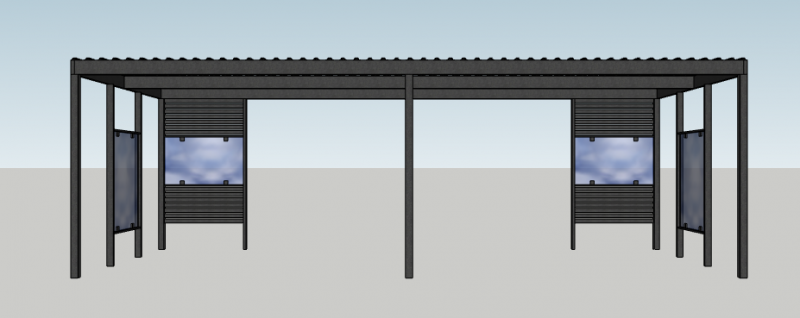
Because many in the area don’t have reliable transportation and there aren’t many community centers or parks nearby, Haines also wanted the classroom to be a resource for all residents. In addition to allowing community members to use the internet, the local parks department will be able to use the space for summer camps and other programs.
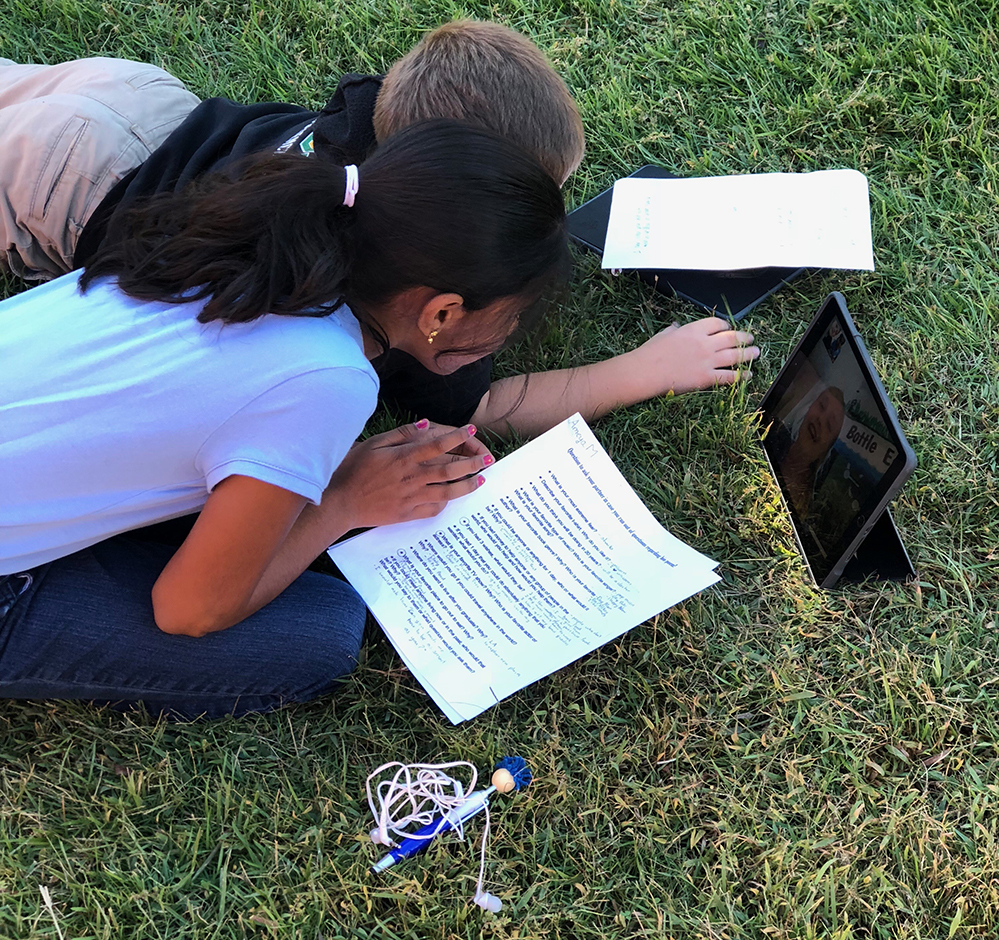
The purpose of the grants was to fuel “solutions meeting the current challenges” with a “focus on students hit hardest and areas hit hardest by COVID-19 — and how do we get them an excellent education now and not years from now,” said Emily Anne Gullickson, founder and CEO of A for Arizona. Gullickson and the vetting committee that chose the grant winners were also looking for strong leaders who had clear plans to serve the kids most in need and who were willing to share what they learned with others, she said.
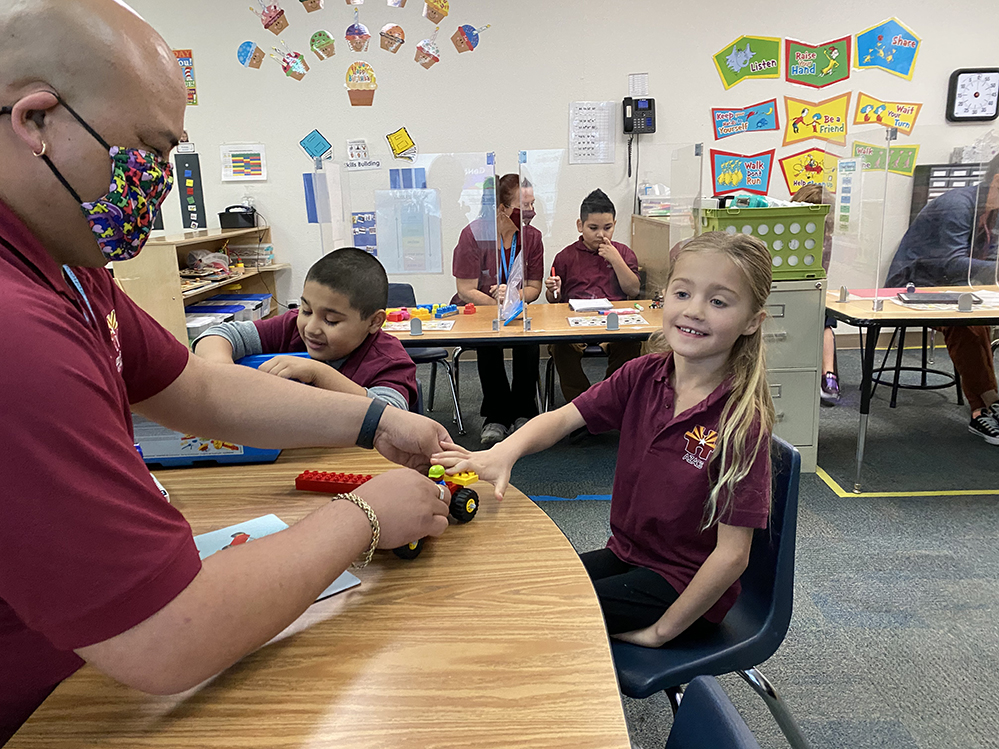
Here are some of the other schools benefiting from these grants:
Arizona Autism Charter School received a $40,000 grant from the organization to help fund its new early learning center, where it opened two new kindergarten classrooms this year and extended the day from three to six hours for all its kindergarteners.
Diana Diaz-Harrison, the school’s founder and executive director, said full-day kindergarten is “really great for kids because we can give them extra doses of clinical services” such as speech and occupational therapy and also helps parents who need full-time childcare. The school has offered in-person and remote options this year, with students quarantining and learning remotely as COVID-19 cases arise, but Diaz-Harrison stressed special education is possible during the pandemic.
“We want to be a model for what can be done for students at all levels if schools are willing to try, to just put in the effort and invest in all students, and by all students we mean neuro-diverse students that have learning differences,” she said. “They are definitely worth investing in.”
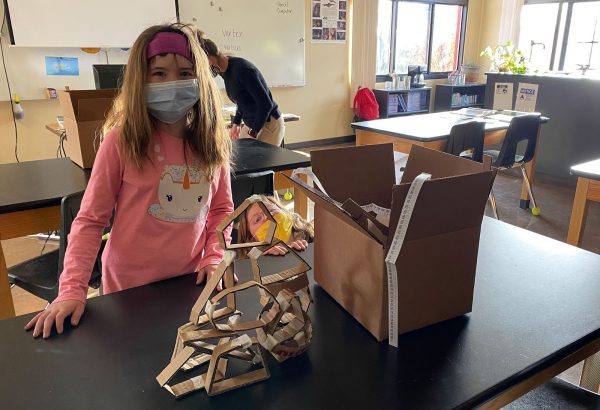
In rural Patagonia, at Patagonia Elementary, educators took a different tack to fostering student engagement during the pandemic: They’re collaborating with a local arts education nonprofit called the Mat Bevel Company to launch a “Creative STEM Club” that will combine lessons in science, technology, engineering and math with the arts. The afterschool program, which began its twice weekly meetings Feb. 1, is open to students second through fifth grade, who can join in person or virtually.
Girls Innovation Academy, a school of choice serving fifth through eighth grade in Alhambra Elementary School District, received $125,000 from A for Arizona last year when the governor’s office gave A for Arizona $1 million to use for small grants supporting innovative schools and programs. The cash helped the school, which has been virtual only this school year, purchase engineering kits, laptops and other materials to make distance learning more engaging for students. Girls Innovation Academy, which opened in fall 2020 and will expand to include kindergarten through fourth grade next school year, enrolls 12 students this year.
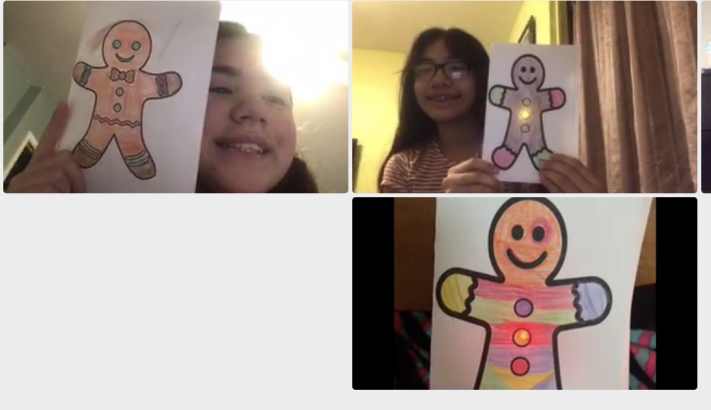
The A for Arizona grants are a small part of Arizona’s push to keep kids learning during the pandemic. The state has also created a $19 million fund for “acceleration academies” — schools where students were hit especially hard by COVID-19 or are especially vulnerable to learning loss — to use evidence-based strategies to speed up learning in math and language arts.
The state also announced in mid-February that schools would receive $1 billion in federal funds to use for building changes and equipment to mitigate the spread of the coronavirus as well as recovery, including “intervention for learning loss, special education, technology and possible mental health support,” the Arizona Republic reported.
Get stories like these delivered straight to your inbox. Sign up for The 74 Newsletter

;)
